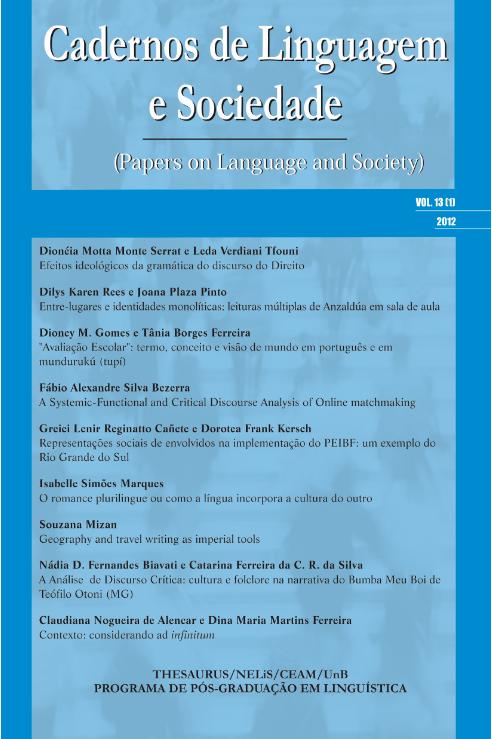The multilingual novel or how language includes the Other’s culture
DOI:
https://doi.org/10.26512/les.v13i1.11827Keywords:
Multilinguism. contemporary portuguese novel. identity. alterity. culture.Abstract
The languages, while “codes” are instruments of socio-political, socioeconomic and socio-cultural challenges. The discursive heterogeneity accompanies miscegenation and cultural identity in these multilingual novels. This multilingual writing, with cultural and linguistic sources, allows the construction of a “meta-narrative identity” and draws attention to the notion of linguistic identity. The multilinguism in novels isn´t merely an enactment of the word of the Other as opposed to a specific language that ensures the identity of the speaker, and can also function as a movement of relativization for identity criteria membership. Multilingualism in novels works as a centrifugal force that allows the decentralization and break of the Portuguese State’s monolingual and centered speech. These novels are an example of the deconstruction in dominant models of identity as they portray characters which represent peripheral ethnic groups.
Downloads
References
Geertz, C. The Interpretation of Cultures. Basic Books: New York, 1973.
Holland, P. and Huggan, G. Tourists with typerwriters: Critical reflections on Contemporary Travel Writing. University of Michigan Press, 2000.
Latour, B. We Have Never Been Modern. trans. Catherine Porter. Harvard University Press: Cambridge, Massachusetts. 1993.
Pratt, M. L. Imperial Eyes: Travel Writing and Transculturation. New York: Routledge, 1992.
Said, E. Culture and Imperialism. New York: Vintage Books, 1994.
Stafford, R. A. “Scientific Exploration and Empire”, The Oxford History of the British Empire (Volume III): The Nineteenth Century, Porter Andrew, ed. Oxford University Press, Oxford and New York, 1999.



